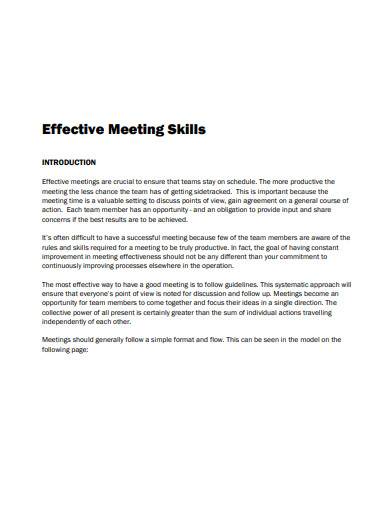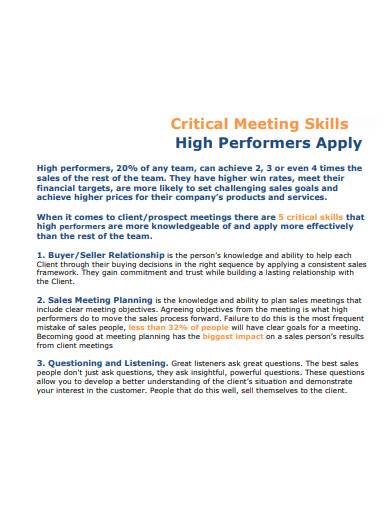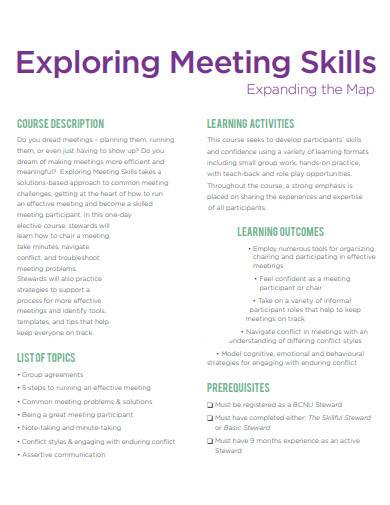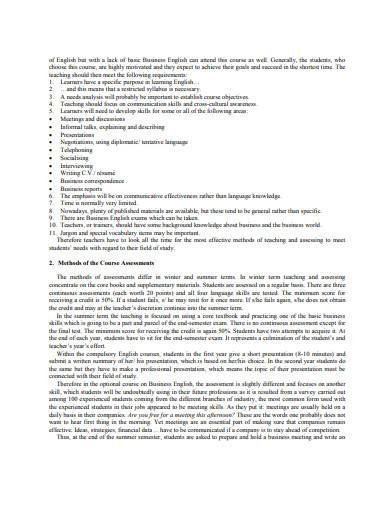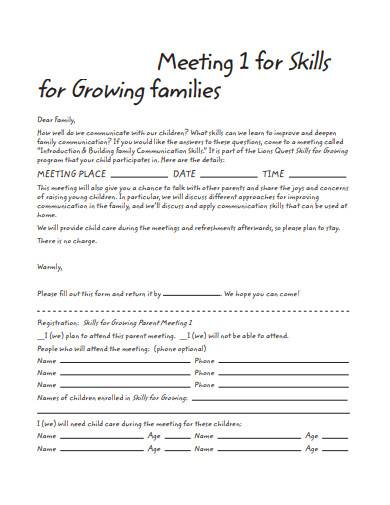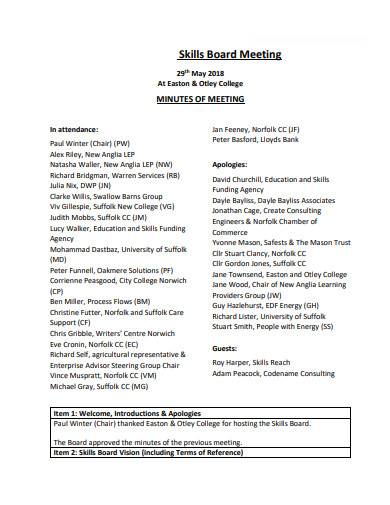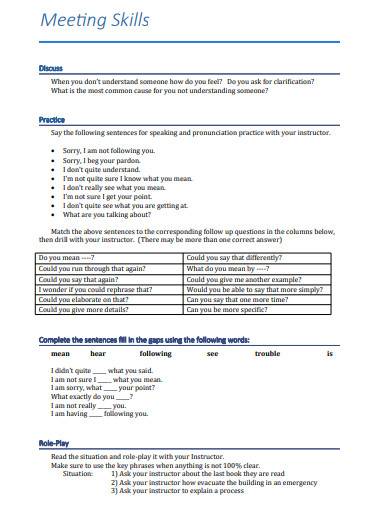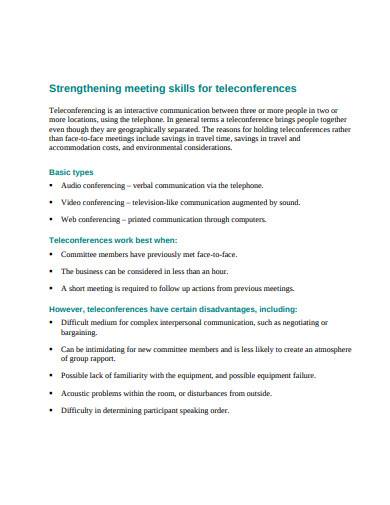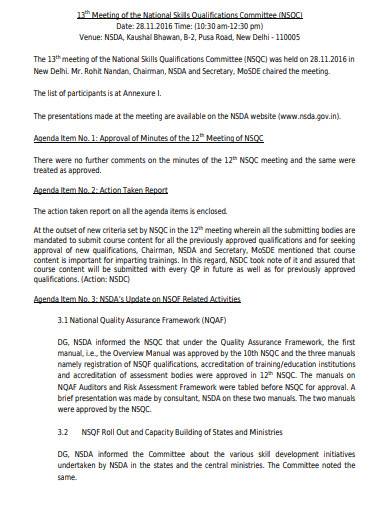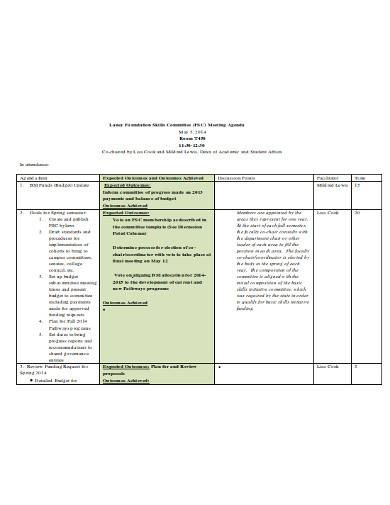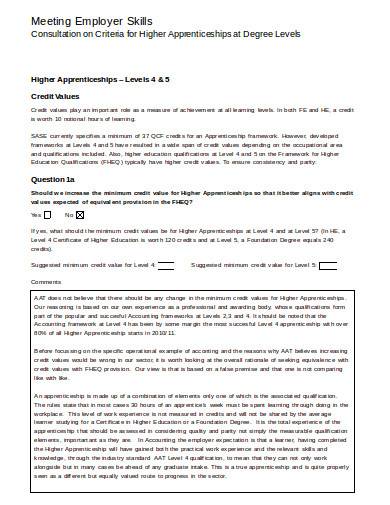What is stereotypically classified as insipid and boring, yet is an essential aspect of running a business? If your answer was anything other than “meeting,” then you, unfortunately, didn’t get the riddle. Meetings are vital to entrepreneurship as they establish order and foolproof business plans. However, conducting a meeting effectively is a different story and requires a particular skillset to facilitate a conglomeration of ideas successfully.
What are Meeting Skills?
An underappreciated, yet necessary skill that all managers, team leaders, and CEOs should have is the ability to facilitate a business meeting. To stand in front of a crowd and discuss agendas and objectives is already a challenge of itself, but to also facilitate the sharing of ideas and deduce practical ideas from ones that aren’t as viable? The pressure that comes from such a task is considerably hefty, and only the most skilled can bear its weight. So, what exactly is the skill set needed for such an endeavor?
No part of a business meeting is done without ample preparation. From setting a meeting schedule to informing coworkers of the gathering, each part of the development takes a particular level of finesse to pull off. This is what meetings skills are in essentiality; the ability to utilize both people skills and business documents to turn a 4-walled office into a breeding ground for innovation.
A Symphony of Concepts
Most people think that being an orchestra maestro is as easy as finding any stick and waving it around like a drunk oaf. However, being a maestro requires proficiency in varying fields. Not only do you need to have a passion for the fine art of music, but you also need people skills, leadership skills, and a whole lot of patience. If you think that this sounds familiar—pun intended—that’s because a few of these are also the skills needed to conduct a business meeting. Whether it’s a meeting checklist or a 4/4 cello, a pointer stick or a baton, both corporations and orchestras produce a symphony of concepts.
10+ Meeting Skills Samples
1. Effective Meeting Skills Sample
2. Critical Meeting Skills Template
3. Exploring Meeting Skills Sample
4. Teaching and Assessing Meeting Skills Sample
5. Meeting Skills for Growing Families
6. Skills Board Meeting Sample
7. Basic Meeting Skills Template
8. Meeting Skills for Teleconferences Template
9. Meeting of the National Skills Qualifications Committee Sample
10. Skills Committee Meeting Agenda in DOC
11. Meeting Employer Skills in DOC
How to Conduct a Productive Meeting
It is the aspiration of every board meeting to produce outputs based on their intended agendas. From dicussing project budgets to auditing expenditures, there are various reasons to conduct a meeting. However, to productively make use of this activity is a different story; to help you out in effectively discussing your ideas and solutions, here are a few general suggestions you can follow.
1. Notify Your Team
Meeting memos and notices aren’t just fancy add-ons to your meeting like toppings on an ice cream; they’re a necessity. They inform your team of the occurence of the meeting, the possible topics covered, the duration, and where it’s to be conducted. This is important since a meeting that was planned ahead of time and is done with a well-informed team is going to be more productive than a surprise meeting where people still have a lot in mind and can’t concentrate on the objectives.
2. Stick to the Schedule
No matter how many things you need to discuss, or how many solutions are required, it’s best to stick to the meeting schedule. As much as possible keep unnecessary topics and segways to a minimum and keep the focus on what needs to be addressed. The last thing you want is an aggravated team because a one-hour meeting turned into a three-hour fiesta of discussions on fashion, sports, and other irrelevant topics.
3. Have Meeting Minutes
What’s the point of all that discussion and “productive talk” if you forget to record it all. It’s an undeniable fact that if you forget even a few points discussed during the gathering and you had no notes to fall back to, it won’t be as effective as it could’ve been. As such, always have meeting minutes to serve as both reiteration and reference.
4. Propagate Idea Sharing
As a meeting coordinator, it’s your job to make sure everyone gets to share their concepts and solutions. The purpose of a meeting, after all, is to propagate idea sharing to find innovative ways of tackling corporate hurdles. You never know, the answer to a gargantuan problem lies within a simple solution proposed by an observant meeting attendee.
If projects and financiers are the lifeblood of the corporation, then a meeting is the heart that pumps them through your business. Whether you’re an entrepreneur of high-end music or goods and services, one thing is sure; a particular skill set is needed to conduct meetings and orchestras alike. Though meticulous in nature and aneurysm-inducing to prepare for, when everything falls together, the discussion and problem-solving in a productive meeting is music to any businessman’s ears.
Related Posts
13+ Sample Project Meeting Minutes Template
10+ Retail Sales Job Description Sample
8+ Career Assessment Samples in Word
7+ Sample Skills for Medical Resume
5+ Business Plan Cover Letter Sample
19+ Meeting Memos
28+ Agenda Sample in Word
10+ Interview Agenda Samples and Templates
7+ Sample Post Interview Thank You Letters
41+ Sample Agenda Template
7+ Sample Weekly Agenda
Things Every Project Manager Should Know
10+ Application Cover Letter
9+ Sample Sales Resume Skills
7+ Sample Event Planner Cover Letter

